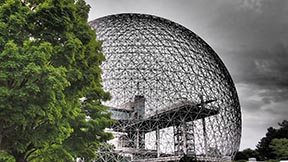call for papers
The ACM/IEEE International Conference on Internet of Things Design and Implementation (IoTDI) is a premier venue on IoT. To reflect the interconnection of IoT with both cloud computing and cyber-physical systems, IoTDI is co-located in even years with IEEE IC2E and in odd years with CPS-IoT Week. In 2019, IoTDI will be held for the fourth time, and will be part of CPS-IoT WEEK 2019.
A confluence of technological advances marks the advent of a new era. World data volume is growing at an unprecedented pace, much of it from embedded devices. Smart cities are expected to grow, fed by millions of data points from multitudes of human and physical sources. Cyber-attacks grow more nefarious, bringing down physical systems. Social networks are becoming ubiquitous, offering information on physical things. The separation between cyber, physical, and social systems is blurring. Collectively, these developments lead to the emergence of a new field, where the networking and physical realms meet. It is the field of the Internet of Things (IoT). This conference is an interdisciplinary forum to discuss challenges, technologies, and emerging directions in system design and implementation that pertain to IoT. This conference invites researchers and practitioners from academia, industry and government, and accepts original, previously unpublished work on a range of topics related to IoT.
Topics of interest include, but are not limited to:
• Analytic foundations and theory of IoT
• Reliability, security, timeliness, and robustness in IoT systems
• Novel protocols and network abstractions • Data streaming architectures and machine learning analytics for IoT
• IoT-motivated cyber-physical and Industrial IoT (IIoT) systems
• Novel quality requirements and their enforcement mechanisms
• Cloud back-ends and resource management for IoT applications
• Edge and fog computing
• Personal, wearable, and other embedded networked front-ends
• Social computing and human-in-the-loop issues
• Applications domains (e.g., smart cities, smart health, smart buildings, smart transportation)
• Deployment experiences, case studies & lessons learned
• Evaluation and testbeds
Accepted papers of particular merit will be invited to submit an extended version to the ACM Transactions on the Internet of Things (TIOT).
Joint Statement from IoTDI/IPSN Chairs
IPSN and IoTDI are collaborating to create new synergies, and also exploiting their CPS-IoT WEEK bi-annual co-location. Prospective authors are thus strongly encouraged to consider these guidelines when submitting papers:
• Contributions of an embedded nature and applying to network segments from the IoT gateway to field devices should be submitted to IPSN. Examples include localization, low-power wireless networking, and embedded data processing.
• Contributions with an end-to-end perspective or applying to network segments from the IoT gateway to the cloud should be submitted to IoTDI. Examples include cloud data processing, edge computing, and systems covering multiple network segments.
The TPC chairs of both conferences may agree to move a submitted paper from one to the other if they see a better fit, subject to the authors’ consent. The final decision about where to submit, and therefore what program committee will review the work, ultimately rests with the authors.
Call for papers in PDF.
Important Dates
Abstract submission deadline [firm]: Wednesday, October 10, 2018 [11:59 PM Anywhere on Earth]
Paper submission deadline [firm]: Wednesday, October 17, 2018 [11:59 PM Anywhere on Earth]
Author rebuttal due: Monday, December 10, 2018 [11:59 PM Anywhere on Earth]
Notification deadline: Tuesday, January 18, 2019 [11:59 PM Anywhere on Earth]
Camera ready submission deadline [firm]: Friday, February 15, 2019 [11:59 PM Anywhere on Earth]
CPS-IoT Week 2019
CPS-IoT Week is the premier event on Cyber-Physical Systems. This year it brings together five top conferences, HSCC, ICCPS, IPSN, IoTDI and RTAS]




